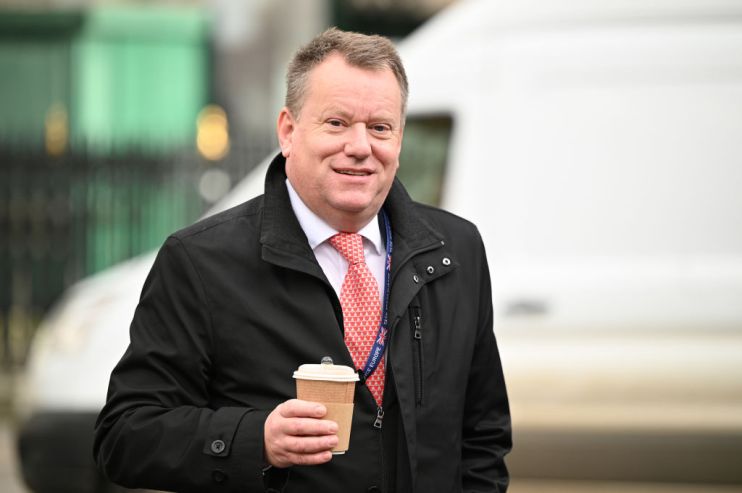David Frost: UK-EU Northern Ireland negotiations making little progress

Talks between the UK and EU over post-Brexit conditions in Northern Ireland are still making “little progress” as tensions remain high, according to UK-EU minister Lord David Frost.
Frost said that “we would prefer to find negotiated ways forward”, but that “all options remain on the table”.
Last week’s G7 summit in Cornwall was often overshadowed by fights between Boris Johnson and EU leaders over the implementation of the Northern Ireland Protocol.
The Prime Minister has threatened to suspend the protocol unless Brussels does relaxes checks on goods going from Great Britain to Northern Ireland – a move that would lead to a potential trade war and unrest in Northern Ireland.
Frost told MPs on the Northern Ireland Committee that the row was putting peace in Northern Ireland at risk.
“There comes a point when the unsatisfactoriness to the current situation and the attempts to operate it in itself contribute to the uncertainty and instability then a responsible effort to bring responsibility and certainty can improve the situation rather than make it more difficult,” he said.
“So obviously if we judge the situation and we look at the range of options that might bring further stability.”
Frost also said there had been a “weakening of consent” in unionist Northern Ireland communities “for the arrangements in the protocol and that’s obviously produced instability and uncertainty”.
Northern Ireland still follows the EU’s customs union and single market rules, unlike the rest of the UK, in order to avoid a hard border with the Republic of Ireland.
This has led to checks on some goods travelling between Great Britain and Northern Ireland and a so-called border in the Irish Sea – something that has created strong opposition among some unionist communities.
Johnson argues that the imposition of stringent checks are damaging the local economy and leading to tensions in the unionist community and has called for a less bureaucratic approach.
Riots in Belfast earlier this year were partly blamed on the post-Brexit treaty.
The EU, meanwhile, do not want goods that have not undergone checks to enter into its single market.
One area of disagreement is the future of chilled meats, like minced beef and sausages, produced in Great Britain as they are set to be banned in Northern Ireland from the end of this month.
Johnson has threatened to ignore the upcoming ban – something the EU has warned could cause a trade war.
President Emmanuel Macron said at the G7 that “inconsistencies from the British side shouldn’t be blamed on the EU”.
Multiple media outlets reported Macron told Johnson during a G7 meeting that Northern Ireland was not in the UK – a claim that infuriated foreign secretary Dominic Raab and others in government.
The Prime Minister was reportedly trying to explain the anger over the upcoming sausage ban, saying to Macron that he would not be happy if meats could not be transported from Toulouse to Paris.
The French President is said to have replied that the comparison does not work as Paris and Toulouse are in the same country, unlike Northern Ireland and Great Britain.
“Speaking to Sky News, Raab said: “That is not only offensive, it has real world effects in the communities in Northern Ireland, creates great concern, creates great consternation.
“But also, could you imagine if we talked about Catalonia, the Flemish part of Belgium, one of the lander in Germany, northern Italy, Corsica in France as different countries?”